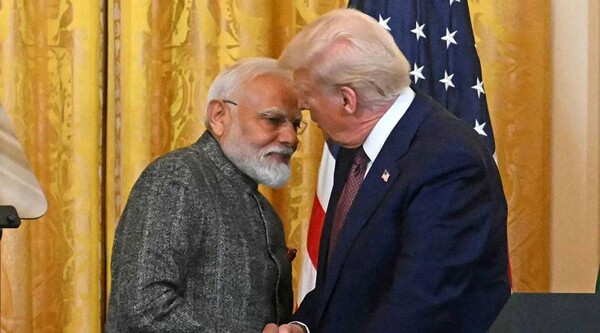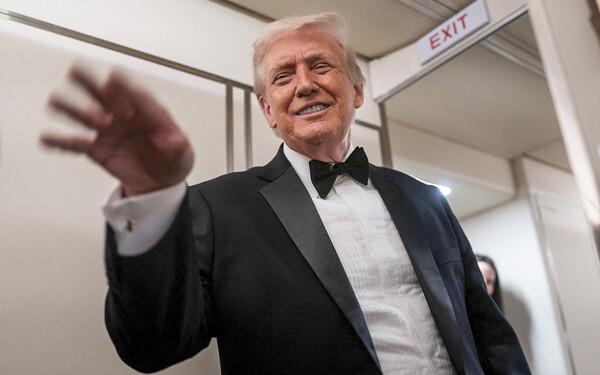
President Donald Trump is exempting automakers from the new tariffs imposed on Mexico and Canada for one month, the White House reported on Wednesday, as a temporary measure following requests from industry leaders.
"We are granting a one-month exemption to any vehicle that passes through the USMCA," said White House Press Secretary Karoline Leavitt, referring to the trade agreement Trump negotiated with Canada and Mexico during his first term. "The reciprocal tariffs will still take effect on April 2, but at the request of companies associated with the USMCA, the president is giving them a one-month exemption so they do not suffer an economic disadvantage."
Administration officials met on Tuesday to discuss the topic with the CEOs of Ford Motor Co., General Motors Co., and Stellantis NV.
Another meeting about a possible relief of tariffs is scheduled for Wednesday at the White House, sources familiar with the matter said. Representatives from Ford, GM, and Stellantis declined to comment.
The discussion at the White House about delaying the auto tariffs was previously reported by Bloomberg News, causing an increase in the stock prices of U.S. automakers. Stellantis expanded its gains up to 8.1 percent at 12:41 p.m. in New York, while GM shares rose by up to 6 percent and Ford's shares increased by 4.5 percent.
The spokesperson said that "the reciprocal tariffs will still take effect on April 2." Until now, the White House had not set a specific date for the implementation of these tariffs against countries that Washington considers to be imposing tariff and non-tariff barriers against its goods and services.
However, Leavitt explained that "at the request of the companies associated with the USMCA, the president is going to give them a one-month exemption so they do not find themselves at an economic disadvantage."
"The three companies he spoke with are Stellantis, Ford, and General Motors. They requested the call, they made the request, and the president is happy to do it; it will be a one-month exemption," she clarified.
The possible delay for the automotive sector, one of the most affected by the trade war in North America, caused an increase in the stock values of the three manufacturers this Wednesday, which two hours before the close on Wall Street showed gains between 5 and 8.5 percent.
The automotive sector of the United States, Canada, and Mexico is fully integrated, and some parts used for vehicle manufacturing cross the borders up to eight times during the manufacturing process.
Since his return to the White House, Trump has aimed to activate tariffs to correct what he considers unfair trade deficits for Washington, to attract foreign capital investment, and, above all, as a pressure measure against Mexico, Canada, and China to reduce the flow of fentanyl entering through the U.S. borders.














